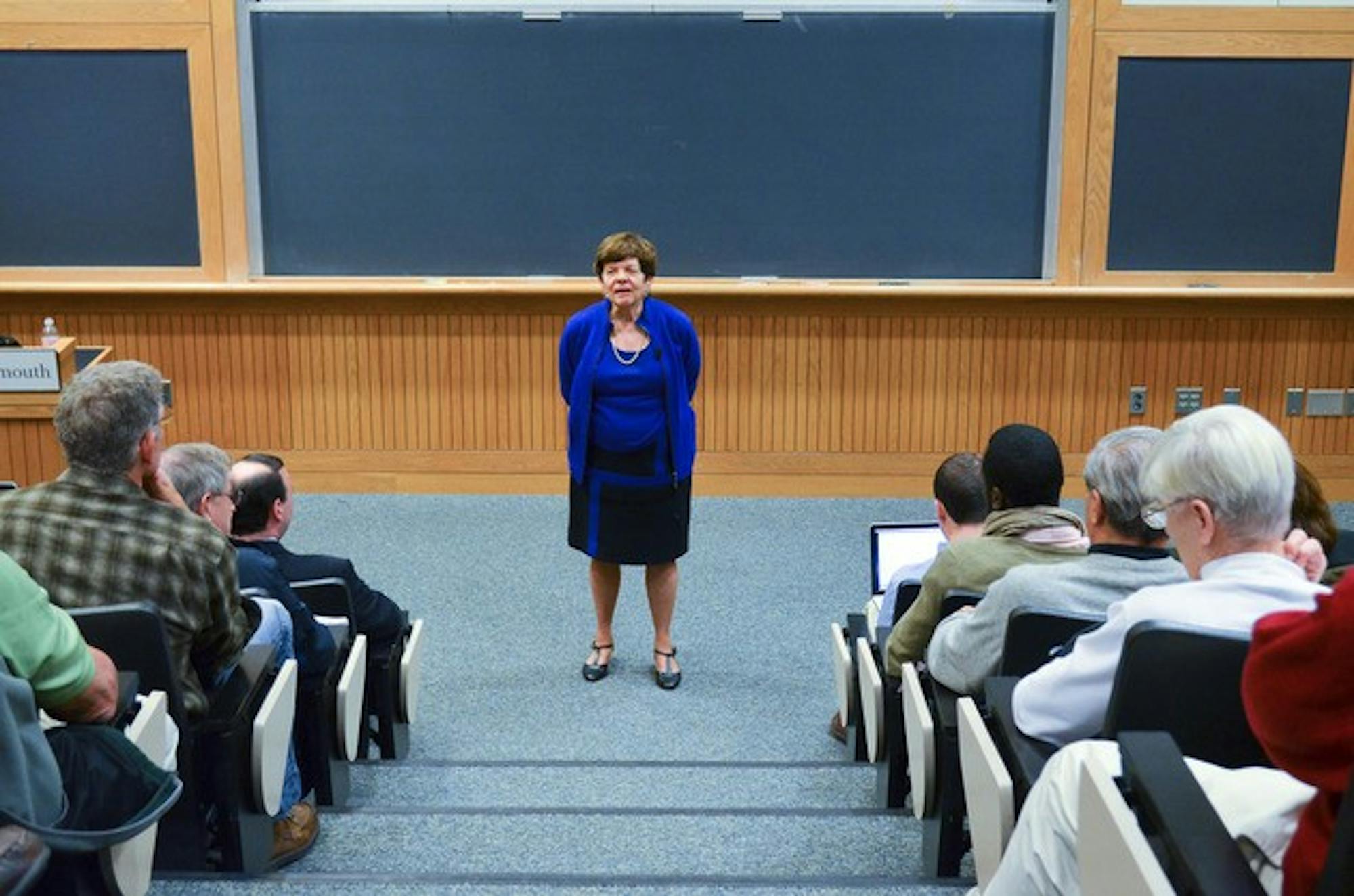Rivlin highlighted the necessity of congressional compromise in preventing the fiscal cliff a series of austerity measures including spending cuts and tax hikes set to go into effect as of Jan. 1. These measures were designed to be undesirable enough to motivate congressional action before the deadline, she said.
"The bottom line is that we have to do something," she said. "If we allow the fiscal cliff to take effect, we're likely to be in a new recession, and then it's really serious."
Rivlin expressed cautious optimism for a congressional solution to balancing the deficit, citing "earnest and well-motivated" members of Congress planning future legislation during the lame duck session.
She said she foresees a solution that would postpone the fiscal cliff if Congress issues instructions to "committees of jurisdiction." These committees would write tax code and entitlement adjustments to be passed through "expedited regular order" in the Senate next year.
Rivlin suggested Congress require sensible deficit measures to take effect if other compromises do not occur.
During the question-and-answer session at the lecture's close, Rivlin fielded questions regarding politics and specific economic concerns. She noted the symbolic importance of a deficit deal to American citizens and underscored the importance of political compromise.
Rivlin said that the deficit holds particular importance for young people in an interview with The Dartmouth.
"Young people are the most important in the subject of how do we control our future debt because if we don't, [they are] going to pay it," she said.
She said President Barack Obama's failure to embrace the solution that arose from Simpson-Bowles was a "tactical mistake" and that Republican vice presidential candidate Rep. Paul Ryan, R-Wis., who was also a member of the Simpson-Bowles commission, withheld support due to reelection concerns.
Economics professor and Director of the Rockefeller Center Andrew Samwick introduced Rivlin at the start of the lecture.
The country has been "kicking the can down the road," procrastinating finding a real solution to the deficit, Samwick said.
"There are a lot of cans, and we've come to the end of the road," he said. "If we are not careful, we will follow those cans over that cliff."
The audience of students, faculty and community members spread from the 107-person capacity lecture hall into an overflow room. Several attendees said they enjoyed the lecture.
"I think it was balanced, level headed and very logical and informative," Hanover resident Iain Sim said.
He noted that Rivlin's lecture left him cautiously optimistic.
"It gives you on the one hand some sense of hope that someone like her could achieve something," he said. "At the same time, she hasn't gotten that consensus developed, translated into policy."
As a college student, Ellen Daily '14 said she thought the discussion was particularly important for students.
"We're the one's who are going to be solving the problem," she said.
Henry Joyce '16 said that Rivlin's expertise impressed him. Her experience gives her a "pretty good voice for reasonability and sanity," he said.
Rockefeller Center Senior Lecturer and Policy Fellow Charles Wheelan said that Rivlin was "a terrific and articulate spokesperson for the nature of the problem, the range of possible solutions, the political impediments."




